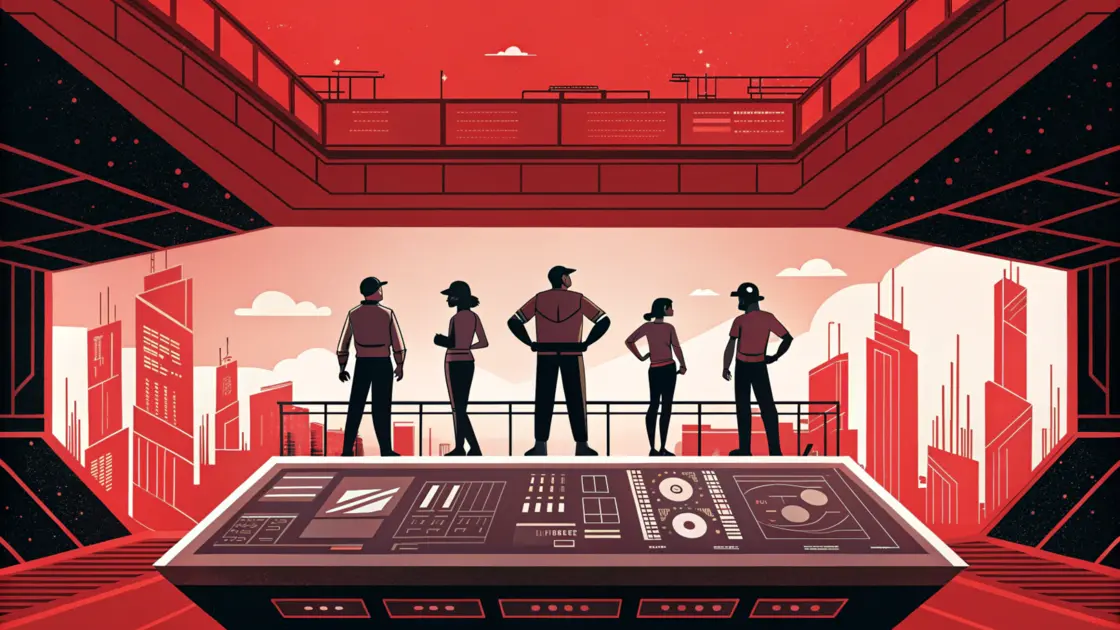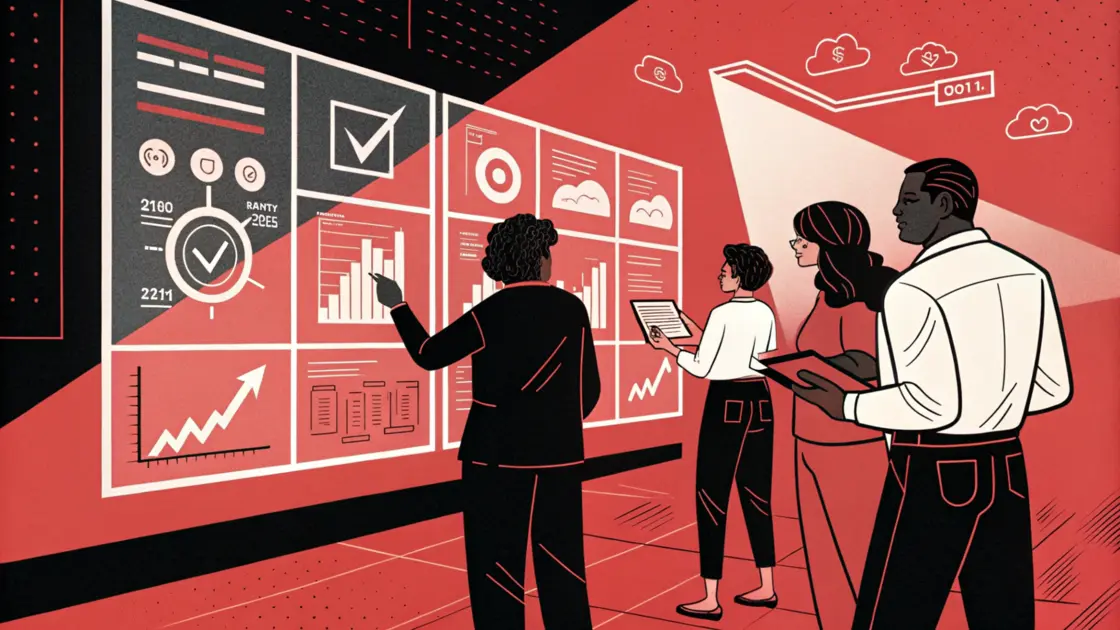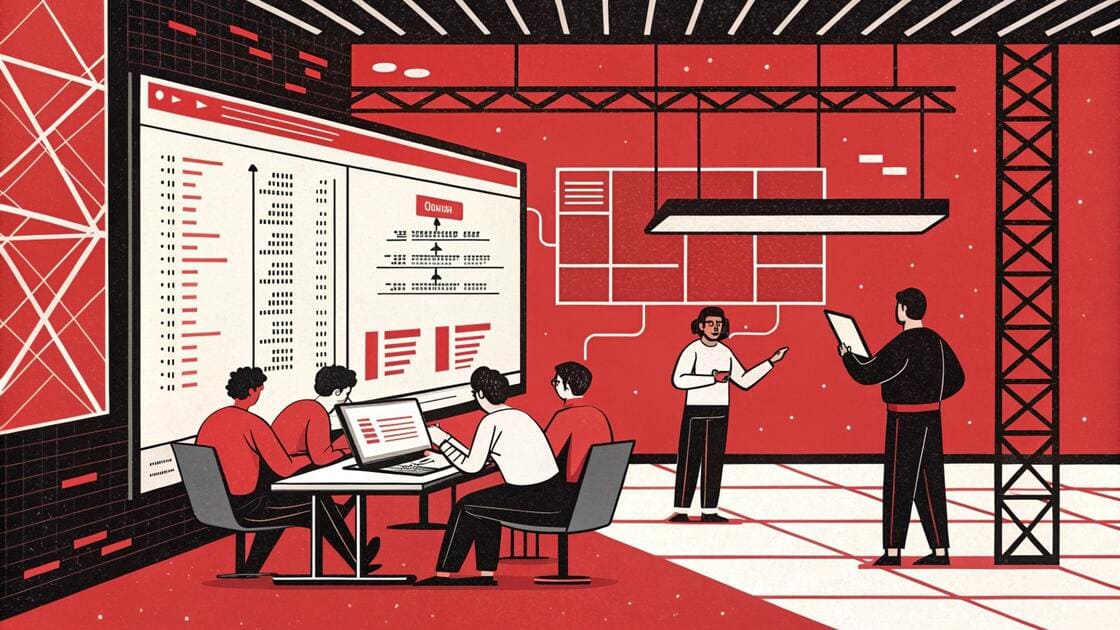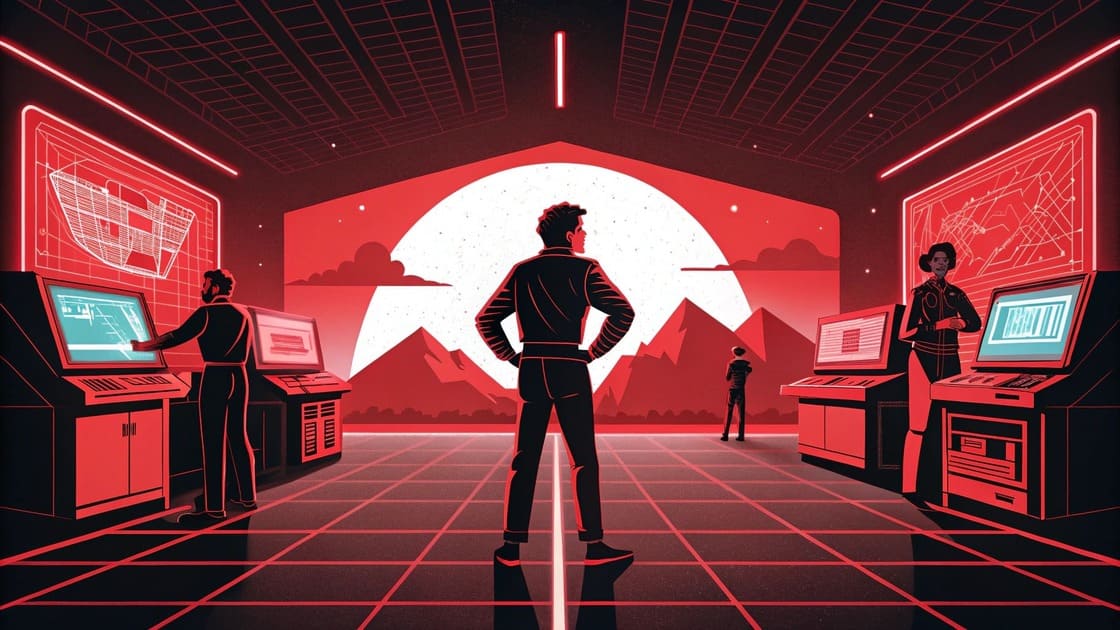
Technical job interviews aren't the same as your typical job interview. Beyond the stellar skills on your résumé and how well you fit into the company’s culture, technical interviews have one purpose: to test the sharpness of your problem, solving skills within a given timeframe.
Very often, this test will be right then and there, either on the remote call or on a timed, automated onsite marathon. Depending on the company, they might also give you a take-home project you can work on for a whole day.
No matter the task, your ability to think strategically and troubleshoot effectively will play a key role in your success. Interviews are complex, with plenty of moving parts, how well you prepare, how confidently you handle the process, and how professionally you follow up all contribute to the final outcome.
In this guide, I'll offer you the exact interview tips I give tech professionals on how to upgrade their careers. Let's do this!
Meeting someone without knowing the first thing about them is insulting, to say the least. It might not be a requirement, but knowing and actually caring about the company you’re applying for gives you plenty of talking material. You can be specific about things like the solutions they've been working on, what you're genuinely excited about, and why you want to work with them in the first place.
Here’s how to do it:
Imagine you're preparing for a big interview. You’ve done your homework, dug into the company’s recent projects, and now you’re thinking about how to stand out. Instead of offering a broad, impersonal line like, “I love working in tech,” you might frame it differently:
“I'm genuinely excited about the cloud solutions your team has been developing over the past year.” See how that small change makes a big difference? Suddenly, the focus shifts from being about you to being about them, and that shows real interest!
Take Google’s technical interview process as an example. It usually kicks off with a recruiter screening, where they'll explore your resume and see if you're a good fit. This initial step might seem straightforward, but being prepared and organized here can set a positive tone for the rest of the process. It's your first chance to make a lasting impression, and it's worth putting in the effort to make it count.
And that brings us to the power of first impressions…
Your elevator pitch is your own “unique selling proposition”, so to speak. If you had to talk about yourself in a minute or less, what would you say?
In my case, I would say exactly what’s on my website bio…
“My name is Mario Lemes Medina, and I’m a Senior Tech Lead with over 10 years of experience in the software development industry. I specialize in guiding tech professionals toward career growth by combining strong technical skills with effective leadership. My focus is on helping teams build scalable, high-performing systems while promoting collaboration and innovation in the workplace.”
In less than 1 minute, I've mentioned:
The goal of an elevator pitch is to “wow” with as few words as possible. Let's try another example:
“I'm Alex, a software engineer with three years of experience building scalable backend systems. I specialize in optimizing database performance and building APIs using Java based frameworks, and I'm looking for the opportunity to contribute to your team's efforts in efficient data management.”
Now, think about yours!
It's hard for an interviewer to focus on you and your skills when something's going on in the background. It's also hard for you to do your best work when you're worried about something else, like a glitchy camera.
If your interview is remote:
If your interview is in-person:
You’ve got the skills, but the way you convey them is just as important. If you've ever heard someone say “That person knows their stuff, too bad they don't know how to explain it,” you know what I'm talking about. With that in mind, here are a few tips:
Interviewers want to understand your problem-solving process, not just see a finished solution. This is especially true in high-stakes settings, like Google’s onsite interviews, where candidates are often given coding problems centered around data structures and algorithms.
When faced with a problem:
A lot of candidates will pass on this stage of the process, which could give you a serious boost. While it's true that your position isn't guaranteed, it shows a high level of interest and professionalism.
In the email, you can thank them for their time once again. Follow by mentioning a specific point of the interview you found particularly insightful or enjoyable. This helps reinforce your engagement and shows that you were actively listening during the conversation.
For example, you might say:
"I appreciated our discussion about [specific topic], and it gave me a deeper understanding of how your team approaches [relevant challenge or project]."
End the email by reiterating your enthusiasm for the role and expressing that you’re looking forward to the next steps in the process. A brief, professional closing like “Thank you again for the opportunity. I’m excited about the possibility of joining to your team” leaves a positive impression.
This kind of follow-up email may seem small, but it can set you apart by showing that you’re proactive and genuinely interested in the role.
It's a lot easier to reflect on your performance when you have feedback from previous interviews, But even if you don't, there are ways to do it with a brief self-assessment:
At this stage, you might not have an answer from the company yet. But it's a valuable assessment when the interview is still fresh on your mind.
Not getting a response within the indicated time frame is all too common, unfortunately. It's up to you to send a follow-up email when the time is right. A follow-up email could look something like:
“I wanted to follow up regarding the Software Engineer role. I’m very excited about the opportunity and wanted to check if there are any updates on the hiring process.”
Some companies might reply. Others might not. There’s only so much you can control, what matters is, you’ve done your part.
No matter how professionally you follow every single step I've outlined in this article, there's still a chance you might not get hired. And that's okay! Learning how to adapt to missed opportunities is a substantial part of your growth in the tech industry.
What's more, hearing a “no” is a massive opportunity to ask for feedback and do even better on your next technical interview. Realistically, every setback leads you closer to the “yes”, as long as you're always learning and upgrading.
Good luck. You’ve got this!













© 2026 Mario Lemes Medina. All Rights Reserved.